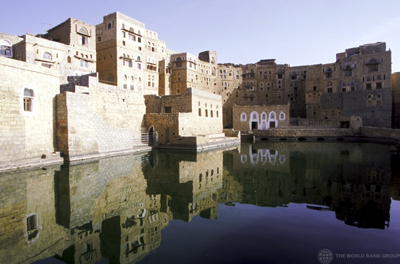Yemen and China Share Knowledge on Management of Coastal and Marine Areas

Summary
Yemen’s 2,250 kilometers of coastline and fisheries provide livelihoods to over 2 million people, but coastal zones have been suffering from lack of management, and fishing production in Yemen has been declining since 2006. China, meanwhile, had successfully accessed World Bank assistance to establish a strong coastal management system that conserves resources while increasing incomes of people living in fishing-intensive areas.1 The World Bank agreed to fund an exchange between Yemen and China to help Yemeni practitioners and policymakers—including the Minister of Fish Wealth, Minister of Water and Environment, Chairman of the Environment Protection Authority, and Deputy Fish Wealth Ministers—improve fisheries and resource management in Yemen’s coastal zones.
In an exchange that included both a Chinese expert visit to Yemen and a visit by Yemeni decision-makers to China, the Yemeni delegation gained information, knowledge, and skills to improve fishery and coastal zone management. The Yemeni delegation noted that China used a comprehensive, decentralized fishery and environmental management system involving a number of government departments and institutes.
“In China we noticed local authorities in the regions and cities have full power to plan and manage, with very dynamic performance,” said Ali Mohamed Al-Habshi, Secretary General with the Yemeni Seafood Exporters Association.
The Yemenis understood the need to adopt and enforce key laws and regulations, and they learned various approaches to encourage economic diversification in areas reliant on fishing. Lastly, the delegation learned about the importance of using scientific research and information management techniques in the management of marine resources.
“I got familiar with advanced sustainable practices on fisheries and coastal zone management,” said Khaled M. Saeed, Director General, Agriculture and Fishery Department, Ministry of Planning & International Cooperation (MoPIC), Yemen. “The new ideas and innovation from the China experience will no doubt help us improve our agenda related to fishery and coastal zone management. By better planning and management of marine and coastal areas, we can achieve value added to the national economy.”
Beneficiaries / Participants
Over 80 percent of Yemen’s poor live in rural areas where, along with agriculture, fishing is a very important economic sector: Yemen’s 2,250 kilometers of coastline and fisheries provide livelihoods to over 2 million people, and fisheries and coastal resources are the most important source of non-oil export revenues. Fishing production in Yemen has been declining since 2006, however, and today accounts for less than 2 percent of the country’s GDP.2
China, meanwhile, has established a strong coastal management system that conserves resources and the environment while increasing the incomes of people employed in the fishing industry.3 Several cities along the East China Sea have established international reputations for their fisheries and sustainable aquaculture production.4
The World Bank agreed to fund an exchange between Yemen and China, called Knowledge Sharing on Systematic Management of Coastal and Marine Areas. The goal of the exchange was to expose Yemeni practitioners and policymakers—including the Minister of Fish Wealth, Minister of Water and Environment, Chairman of the Environment Protection Authority, and Deputy Fish Wealth Ministers—to China’s experience and help the Yemenis improve fisheries and resource management in Yemen’s coastal zones.
Moving forward
This knowledge exchange supports assistance strategies identified for and by Yemen. Yemen has identified ICZM as a priority in its National Adaptation Program of Action. The exchange will contribute to more sustainable fishing and poverty alleviation, identified as the national priorities in the World Bank’s Poverty Reduction Strategy Paper (PRSP)6 and the World Bank’s Country Assistance Strategy (CAS)7, attached to a World Bank $25 million IDA credit.
This knowledge exchange will therefore help improve the practical institutional arrangements to implement several projects supporting Yemen’s fisheries and coastal zones, which aim to create jobs and diversify economic opportunities in fishing-intensive areas. Projects include the IDA/European Commission-financed Fisheries Resource Management and Conservation Project (FRMCP); the Least Developed Countries Fund/Climate Investment Funds-financed Climate-Resilient (CRICZM) Project, financed through the World Bank’s Least Developed Countries Fund/Climate Investment Funds; and the Government of Yemen’s ongoing Fisheries Resource Management and Conservation project.

 China
China Colombia
Colombia Denmark
Denmark India
India Indonesia
Indonesia Mexico
Mexico Russian Federation
Russian Federation Spain
Spain United Kingdom
United Kingdom